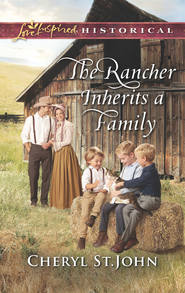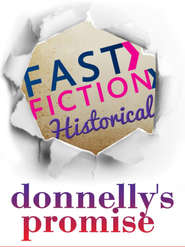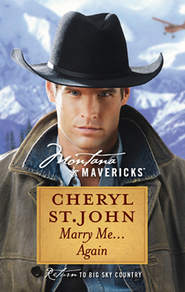По всем вопросам обращайтесь на: info@litportal.ru
(©) 2003-2025.
✖
Colorado Courtship: Winter of Dreams / The Rancher's Sweetheart
Настройки чтения
Размер шрифта
Высота строк
Поля
Chapter Seven (#u378d18e7-b4d9-5ed8-a58a-46f7f2d46636)
Chapter Eight (#litres_trial_promo)
Chapter Nine (#litres_trial_promo)
Chapter Ten (#litres_trial_promo)
Chapter Eleven (#litres_trial_promo)
Chapter Twelve (#litres_trial_promo)
Chapter Thirteen (#litres_trial_promo)
Chapter Fourteen (#litres_trial_promo)
Dear Reader (#litres_trial_promo)
Questions for Discussion (#litres_trial_promo)
Chapter One
Colorado, January 1899
Mr. Hammond’s telegram had assured her, due to the mild winter, that the train would have no problem reaching Carson Springs mid-January. Violet Kristofferson unfolded his message and read it again, her gaze stumbling first over the name she’d chosen. She would have to remember. Bennett. Violet Bennett.
She’d barely been able to eat the entire way, even though train stations between Ohio and Colorado often had decent restaurants or a nice café next door.
Her stomach tightened now at the prospect of living and working among strangers in a place she’d never been, but she’d had little choice—her situation in Ohio had forced her to take action.
The heavy gray sky outside the steamed-over windows didn’t bolster her mood or her confidence, but some time ago the conductor had announced their destination only an hour hence. A single stove glowed in an attempt to heat the railcar, but all day her feet had been numb from the cold. Absently she checked the delicate gold watch that hung on a chain around her neck and discreetly adjusted one leg, then the other, eager to stretch. She would sleep like a baby once she was finally able to lie down with a comfortable mattress beneath her.
The rhythm of the wheels changed, and the car slowed fractionally. Passengers straightened in their seats in anticipation of the stop.
Violet wiped the window with her mittened hand and studied the landscape. Horses and cattle huddled in clusters, dotting the white expanse of snow. Scattered houses came into view, situated closer and closer together the more the locomotive slowed. The train turned a last bend, climbed an incline and chugged into the town.
Carson Springs was larger than she’d anticipated, a combination of stone, wood and brick buildings, most of which she could only see from the back. The train rolled alongside the station, blocking her view of the town. A large canopy covered the platform, wisely protecting it from the elements. From her window seat Violet strained to see the men and women waiting for arriving passengers, unable to guess which might be her new employer.
She waited her turn, descending the stairs behind a portly woman wearing a fox coat and a large plumed hat. Making her way to an open space on the wood platform, Violet stopped to get her bearings. Her breath came out in puffy white plumes. Her feet ached.
Nearby the porters unloaded and stacked trunks and valises.
Violet scanned the crowd. A tall man in a black coat and hat separated from the others and made his way toward her. “Miss Bennett?”
“Um.” Startled at hearing the unfamiliar surname, she composed herself. “Yes.” She didn’t want to be found, and her real name was too distinctive. “I’m Miss Bennett.”
He removed his hat, revealing an unruly shock of russet-brown hair. “I’m Ben Charles Hammond.”
“How do you do?” She offered her hand, and he held her wool-covered fingers for the briefest of moments in a polite greeting.
“I hope your journey wasn’t too unpleasant.”
He had a strong jawline, arching brows and friendly gray-green eyes. She liked him immediately. “Not at all. The accommodations were more than adequate, thank you.”
“If you’ll point out your luggage, I’ll take it to the carriage.”
“There’s only one carpetbag. The other two are crates. Fairly large ones. I don’t expect you to manage those on your own. I can hail someone—”
“Let’s have a look before you count me out.”
“I didn’t mean—”
“I know you didn’t.” He adjusted his hat on his head. “Point them out.”
She indicated her belongings and picked up the bag. He hauled one of the crates to his shoulder, and she followed him through the thinning crowd to a black carriage with a boot on the rear. He stored the load and went back for the second. Meanwhile Violet admired the sleek black horse harnessed to the carriage. Taking a few steps forward and cautious of the layer of dirty snow along the curb, she tugged off her mitten to stroke the animal’s shiny mane and neck. The heat and texture of his hide was familiar and comforting. She could almost smell the stables.
Mr. Hammond stowed the rest of her belongings, folded down a step and waited beside the carriage until she joined him. Quickly pulling on her mitten, she accepted his outstretched hand. Climbing up from the other side, he took the seat beside her. “You like horses?”
“Yes. My father used to take me riding.”
“There are saddles and tack in our stable. Henry takes care of the horses. He’ll help you if you want to ride. Maybe you can get Tessa to join you once the weather’s nice.”
“I would enjoy that, thank you.” Tessa was his sixteen-year-old sister. Violet had been hired to do the cooking for him, his sister and his other employees. He’d suggested she take an interest in Tessa as well, being a companion of sorts as time permitted. “Will I meet her today?”
“Yes. She’s waiting at home.”
Once they’d moved past the main street of businesses, where wagons and buggies traveled and townspeople went about their day, he drove the carriage several blocks along a street of two- and three-story homes until they reached a cross street, where he turned to the right.
“I expect you to take time for yourself,” he said. “Attend church with us—or another church if ours isn’t your preference. Sunday will be your day off. Tessa and I will either fix our own meals or eat in town. You’re welcome to join us if you’re not tired of us by then.”
“That’s thoughtful of you.”
Mr. Hammond was polite and seemed kind and generous. It appeared her concern had been for naught.
The buildings on the north side of this street backed a wooded area. A row of enormous attached brick structures came into view. Behind them stood a matching carriage house and a small wood-frame stable. The sign in front of the first building they passed indicated it was a furniture maker’s. “Do you make furniture?”
“No. My father did, but I sold the business to Walter Hatcher in ’eighty-five. Two doors down is where we live.”
Her interest was definitely piqued now. Whatever he did, his company obviously thrived. “One of these is your home?”
“And my business,” he replied.
A low hedge surrounded the next two connected buildings, where white shutters framed the windows and white arched doors indicated entries. There were two sets of doors on the front, a double set on the right.
They drew close, and a fancily lettered iron sign caught her attention:
Hammond Funeral Parlor
Ben Charles Hammond, Undertaker & Stone Mason











